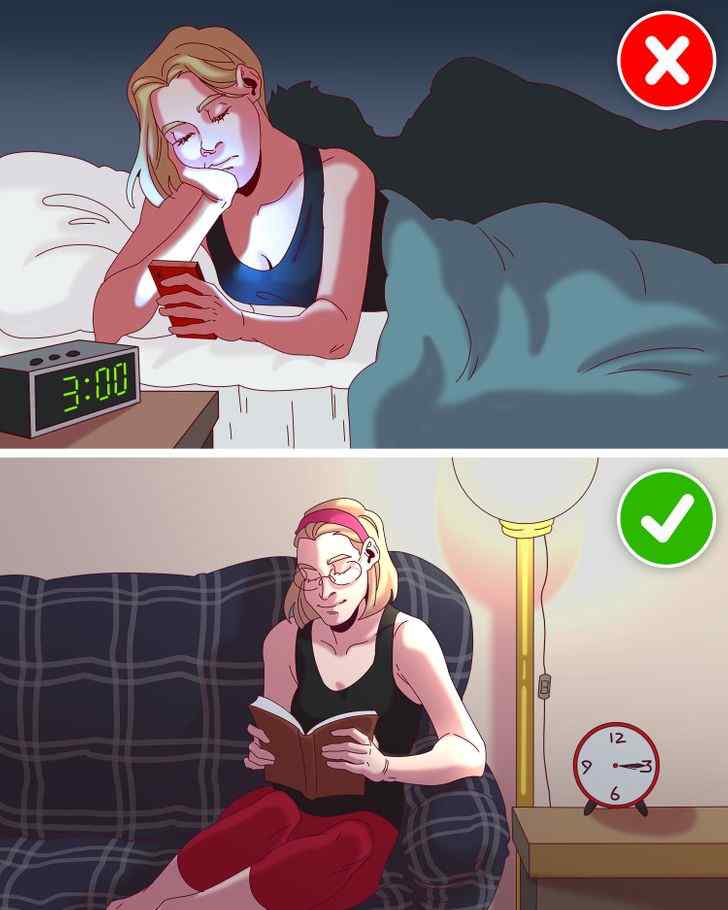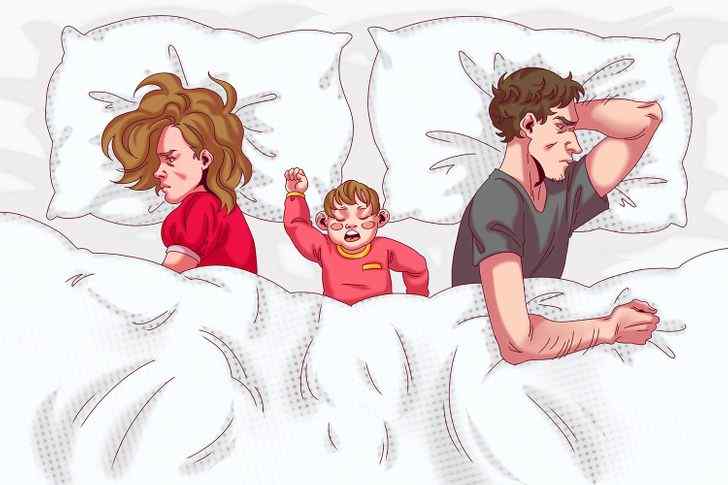
Sleeping with someone else not only gives us emotions of safety and security, connecting, and closeness, but it also offers significant physiological benefits, such as lowering cortisol levels and reducing inflammation. All things considered, it’s a good addition to the experience.
However, some persons appear to be sleep-incompatible. Low cortisol levels are caused by a variety of factors, including opposing sleep cycles, snoring, blanket-hogging, and more. But don’t give up; there are plenty of compromises to be made in terms of bed space.
Blanket tug-of-war

Some people do not like sharing blankets. You go to bed with a 50/50 relationship, but the next thing you know, it’s chilly outside, and you’re shivering in a corner. There’s no more blanket for you! Trying to draw it back is pointless since the hogging will just happen again. Despite its amusing character, the blanket debate can actually strain your relationship and have a negative impact on your sleep quality.
Solution: Invest in a larger bed and separate blankets. This way, you’ll each have your own sleeping supplies and won’t have to “borrow” from one other. Inquire if your companion is comfortable at night – they could be cold.
Snoring

Imagine you’re napping in your bed, warm and comfortable, when a locomotive’s horn tuts just above your ear. It’s not an emergency, it’s just your significant other’s inability to correctly pump air through their nostrils.
Snoring isn’t a major matter on its own, but it can be an indication of a worse problem in the worst-case situation. It disrupts both parties’ sleep schedules, leaving the snorer with headaches, fatigue, and other signs of sleep deprivation the next day.
Short-term fix: Sleep in a different posture, as snoring is most common when we sleep on our backs. Lifting the head may also be beneficial. Use earplugs and go to bed before the snorer. If necessary, maintain some distance between you.
Long-term solution: Weight loss, sticking to a sleep routine, and avoiding alcohol, smoking, and certain drugs can all help. It’s best to see a doctor if the snoring continues to be a problem.
Temperature preferences vary.

For most people, a sleeping temperature of 66°F to 69°F (19°C to 20.5°C) is considered ideal, but it might vary somewhat. You may find that your partner’s preferred “sleeping settings” are different than yours. It takes longer to fall asleep in an uncomfortable environment. It’s also more difficult to fall asleep deeply, so you can have difficulties staying asleep.
Solution: Get separate beds to better suit your individual needs. Overheating makes it difficult to sleep, therefore the individual who prefers to be warmer will find it simpler to compromise. If your companion prefers a cooler temperature than you, pile on the blankets and put on your warmest jammies.
Nighttime wake-ups

It’s not uncommon to wake up in the middle of the night without warning. It could be a symptom of insomnia, or it could be the result of stress, technological use, a poor sleep environment, or simply a peculiar sleep routine. There’s no point in lying here if you wake up and can’t get back to sleep after 15 or 20 minutes. If it happens regularly, the first thing to remember is to treat your partner with respect.
Short-term fix: Get out of bed, go to a different room, and do something relaxing until you fall asleep again. But don’t do anything when your companion is nearby. Return to your bedroom only when you’re ready to sleep again.
Long-term fix: Improve your sleeping habits. Ascertain that your bedroom is dark, quiet, and airy. When it’s time to go to bed, avoid gazing at screens. Caffeine should not be consumed before going to bed. Adopt a soothing sleep routine and stick to a regular bedtime.
Night sweats

You’ve snuggled into a crisp, chilly bed, and everything appears to be in order. However, as the hours pass and two people’s bodies heat up the environment, many people begin to sweat. If you sleep with one blanket or cuddle, night sweating can easily grow into a joint problem. Cuddling or even lying close to a sweaty person is undoubtedly unpleasant.
Solution: The most prevalent causes of people being hot while sleeping are their sleeping settings and bedding design. Use breathable clothing and sheets, such as airy linen, and a mattress with cooling characteristics. However, night sweats might be caused by a variety of diseases, in which case you should see a doctor to have things sorted out.
Clashing sleep cycles

The battle between early birds and night owls is known as the early bird vs. night owl fight. Our internal sleep clock is controlled by a “chronotype” that is unique to each of us. It may change as we age: young adults peak in “eveningness” and mature into “morning types” as they get older.
If you and your partner have different circadian rhythms, it’s critical that you stick to your own sleep schedule and live according to your chronotype. People who try to go to bed too early in the evening may develop insomnia because the urge to sleep when the body isn’t ready causes worry and frustration.
Solution: Going to bed at different times is fine. Lighting can help to modify the sleep schedule slightly. When it’s dark outside, your body produces melatonin, a “sleep hormone” that tells us it’s time to wake up. Night owls may benefit from bright light exposure in the morning and poor light exposure in the evening to shift their waking hours.
Children in the bed

Sharing a bed with just one partner is difficult enough, but adding a child to the mix can completely disrupt your nighttime routine. You’re startled awake, your sleep is interrupted, and your child crawls into bed, taking up more room. Because of this, the marriage can become tense, especially if someone has to leave to make room, and parents frequently feel trapped in situations like this.
Solution: It’s time to toughen up and return the child to his or her bed. It’s critical that they learn how to fall asleep and stay asleep on their own. Co-sleeping can have long-term behavioural and cognitive consequences for a child, as well as wreak havoc on a parent’s sleep health. And it’s unlikely that the child will grow out of it.
What sleep issues do you or your family members suffer from?
